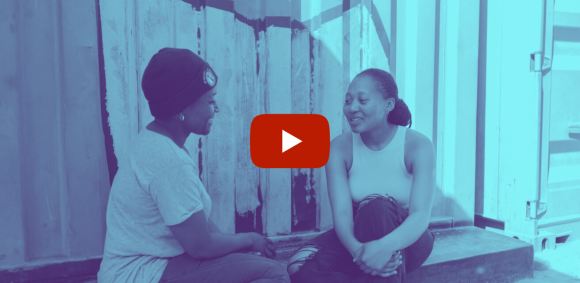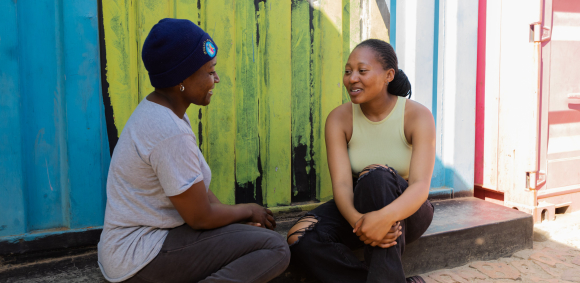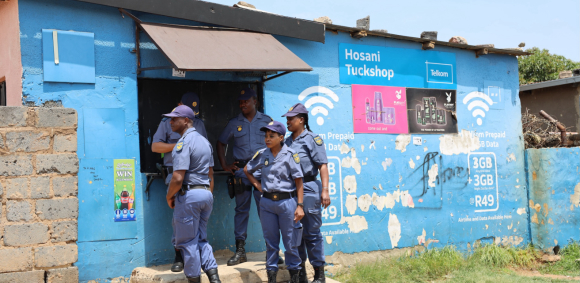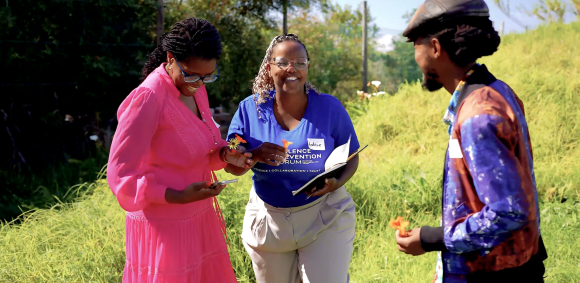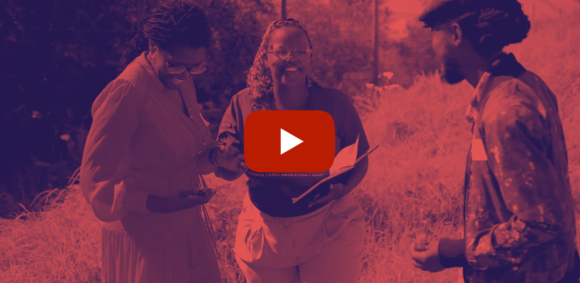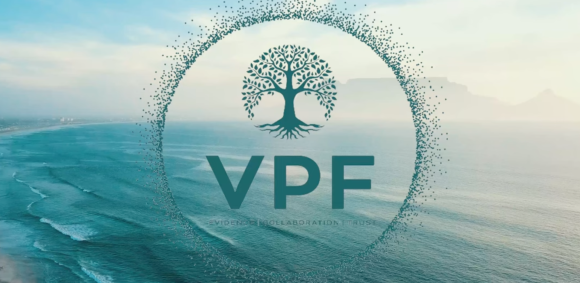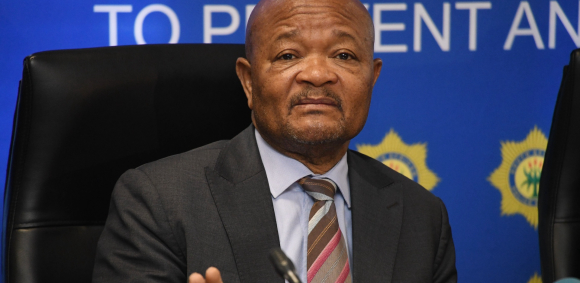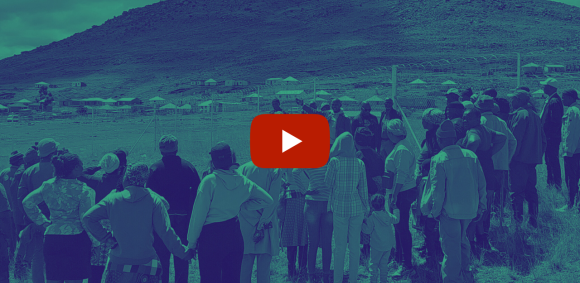Why we work to prevent violence in South Africa
South Africa experiences persistently high levels of interpersonal violence. Many South Africans believe that violence is a necessary and effective means of solving problems. A growing body of research shows how harmful violence is, its cost to society and national development. Over the past ten years there has been an exponential growth in the knowledge about what can be done to reduce and prevent violence. This knowledge is not always accessible to decision-makers, and the opportunity to reduce and prevent violence is often missed.
Government departments, NGOs, researchers, international organisations, development agencies and companies all have critical roles in preventing violence, but they seldom meet, share knowledge or plan together. The Violence Prevention team at the ISS works to bridge this gap by convening multisectoral dialogue; developing and testing new interventions, forging innovative partnerships, and synthesizing and sharing knowledge and evidence.
This is the theory of change that guides our work
Building knowledge, supporting evidence generation, and learning from practice to prevent and reduce violence in South Africa has been a focus of the work of the Justice and Violence Prevention team at the ISS for many years. Our long-term goal is to ensure that evidence-led interventions reduce and prevent violence in South Africa.
What is violence prevention?
In 2021, the VPF developed a definition of violence prevention. Read more about this collaborative process here.

Meet the team

Chandré Gould is a passionate researcher and advocate for the prevention of violence. She is motivated by her commitment to building an equitable, just, kind, and peaceful world. She has a PhD in History from Rhodes University and has written and published books and articles on subjects ranging from biological weapons control to human trafficking and violence prevention. These include: Dis-eases of Secrecy: Tracing Memory, history and Justice and Beaten Bad: the life stories of violent offenders.
Since 2015, she has convened the Violence Prevention Forum, and with the support of colleagues and community members, has replicated the dialogical model at the local level. She is the Co-Chair of the INSPIRE Implementation Working Group and co-chair of the advisory board of IGNITE Philanthropy.
Jody van der Heyde is the INSPIRE Working Group coordinator. She has an honours degree in sociology from the University of Cape Town and a Masters in criminology (with distinction) from the University of Manchester, where she wrote her dissertation on intimate femicide in South Africa. In addition to her role as coordinator, she is also a researcher, facilitator and violence prevention practitioner.
Prior to joining the Institute for Security Studies, she was a research assistant at a development consultancy. Jody is passionate about understanding human behaviour and the social conditions that drive behaviour. She’s interested in the impact of trauma on generational cycles of violence and how to find healing for individuals and society. She enjoys reading books on trauma, psychology and the mind-body connection.


Andisiwe Makwecana holds a BA with a triple major in Women & Gender Studies, Ethics and Psychology and an Honours degree in Women’s and gender studies from the University of the Western Cape. This sparked her interest in gender equality and representation within the Life Orientation curriculum. Since joining the Violence Prevention team, she has gained research and facilitation skills.
As a member of the VP team, Anidisiwe has developed experience in facilitating and convening community dialogue as well as writing meeting reports. Her passion is to work for a just and equitable society with a proactive justice system.
Senzekile (Senzi) Bengu joined the ISS in October 2021 as a Research Officer in the Justice and Violence Prevention programme. She is the co-convenor of the Western Cape Violence Prevention Forum. She is a leader, facilitator, community builder, violence prevention practitioner and aspiring economist. Her favourite book of the last decade is Utopia for Realists by Rutger Bregman.
Before joining the ISS, Senzi worked as a leadership facilitator, training learners and teachers in KZN and the Eastern Cape to be ethical leaders and change agents. She has also worked as a research assistant at the University of the Witwatersrand, where she focused on the impact of conflict, inequality, and poor service delivery on the social contract and social cohesion. She is a co-founder and project lead of Kwasuka Sukela (once upon a time) Foundation, a youth development NGO based in KZN. The foundation works with soccer teams to empower young boys to find their voices and share their stories.
In addition, she serves as the Kader Asmal Alumni Network chairperson, an association of awardees of the Kader Asmal Fellowship Programme (KAFP) to complete Master’s level studies at Irish universities. Senzekile holds a Master’s degree in peacebuilding and development from the University of Limerick (cum laude), Ireland, supported by the KAFP. She also has a Bachelor of Business Science with honours in development economics from Rhodes University (passed cum laude).


Thandi van Heyningen is a senior researcher who joined the team in March 2020. She is deeply passionate about creating safer, healthier families and communities, and she focuses on developing and testing innovative interventions to break intergenerational cycles of violence.
Thandi holds a PhD in Public Health from the University of Cape Town (UCT), a Master's in Clinical Psychology from the University of KwaZulu Natal, and a Master's in International Relations from Stellenbosch University. Before joining the ISS, she worked as a public mental health researcher at UCT, concentrating on integrating mental health services into primary-level public health systems.
Thandi's current projects at the ISS involve developing new programs to combat gender-based violence and protect children, drawing on her experience as a clinician and public health researcher. She employs a multidisciplinary approach to drive progress in achieving positive results, dedicated to enhancing the welfare of women and children in South Africa.
Matodzi Amisi is an evaluation consultant with extensive experience in the public sector and development. She has been a consultant with the Violence Prevention Team since 2019 focusing on M&E and evidence synthesis. She has a keen interest in monitoring and evaluation (M&E) and the use of evidence in the violence prevention sector, with a particular focus on strategies to prevent violence. She has been strengthening monitoring and evaluation of the team’s work and projects with partners.
Between 2006 and 2018 she worked in the South African government, specifically in the Department of Human Settlements and the Department of Planning, Monitoring, and Evaluation in the Presidency. She was part of the team that established the National Evaluation System in South Africa and delivered a DPME/University of Cape Town course for the top three levels of the Public Service on Evidence Based Policy Making and Implementation.


Joy Watson has worked as a researcher and technical advisor in the field of violence against women for more than 20 years. She has worked as a policy advisor to states as well as in the global policy arena. She has a long history of doing research for women’s rights organisations on violence against women and children and in using research to advocate for policy and funding reform. Her passion is in building resilient feminist movements that seek to build a more equitable world. Joy works as a consultant in South Africa and globally.
What we do
Convene multisectoral dialogue
Since 2015 the ISS has convened the national Violence Prevention Forum, a multi-sectoral dialogue platform to support the scale-up of evidence-informed interventions to prevent violence. At the request of participants, a provincial forum was established in 2020 in the Western Cape. The model has also been replicated at community level in Hoekwil and Touwsranten.
Research
We conduct policy relevant primary and secondary research on violence and interventions to prevent violence.
Develop and test new programmes and interventions
In partnership with the South African Parenting Programme Implementer’s Network, we have developed a novel family violence prevention programme called Free-to-Grow. This programme is designed for implementation during working hours for employees and managers of companies. It has been tested at Tikketai, an agricultural food processing plant in the Western Cape. This is what the owner of the company had to say about how it impacted his business:
‘The programme has really helped our employees and the business. There is now less conflict on the production line, improved relationships between staff members, reduced absenteeism, and increased productivity.’
Our work




